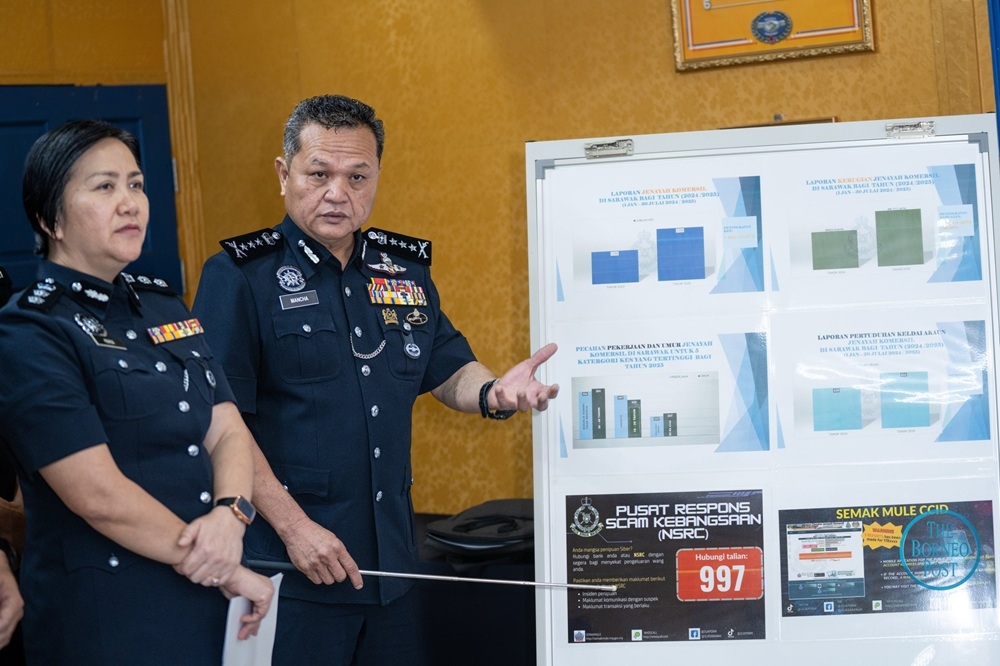KUCHING, Aug 1 — Sarawak has recorded a worrying spike in commercial crime cases, with 2,256 incidents reported between January and July 30 this year.
Sarawak police commissioner Datuk Mancha Ata said the reported cases involved losses amounting to RM77.7 million — an increase of 46.8 per cent compared to RM52.9 million in the same period last year.
“This equates to an average of around seven cases reported daily.
“If these trends are not curbed, total losses could exceed RM100 million by the end of the year, placing significant financial strain on victims and jeopardising household financial security in Sarawak,” he told a press conference here today.
On scammers’ modus operandi and tactics, Mancha said the fraudulent cases involved e-commerce scams, non-existent investment scams, money-lending scams, job scams, phone scams, as well as mule accounts.
On the breakdown of victims, he said based on police data the majority were aged between 30 and 40 years (584), 18 and 29 (439), and 50 and above (267).
“Most of them consisted of those working in the private sector (497), followed by government servants (237), retirees (72), and the rest of them were students and those who are self-employed,” he said.
He pointed out most of these cases were reported in urban areas.
In terms of enforcement, Mancha said 867 suspects were arrested as of July, out of which 834 have been charged in court involving 827 investigation papers.
“Those prosecuted for mule accounts also increased to 832 individuals, compared to 639 people recorded last year,” he said.
Based on an analysis of the cases, Mancha said the police identified key factors behind the public’s vulnerability to scams, such as lack of awareness about how scammers operate, with many victims lured by promises of high investment returns within a short time.
Panic and fear were also cited as major influences, particularly when scammers posed as authorities or bank representatives.
“In addition, many victims failed to verify the authenticity of phone numbers, account numbers, or suspicious links they received.
“Delayed reporting was another concern, with some victims feeling ashamed or embarrassed to admit they had been duped,” he said.
He advised the public to exercise caution when confronted with offers or messages that appear too good to be true, and not to disclose their banking details to anyone.
Phone numbers or bank accounts should be verified through the Whoscall app and the official Commercial Crime Investigation Department (CCID) Semak Mule portal.
Family members are urged to educate elderly relatives and young people to be cautious of viral messages and unauthorised investment opportunities.
Victims should also contact the National Scam Response Centre’s (NSRC) 24-hour hotline on 997 should they fall victim to a scam. — The Borneo Post






